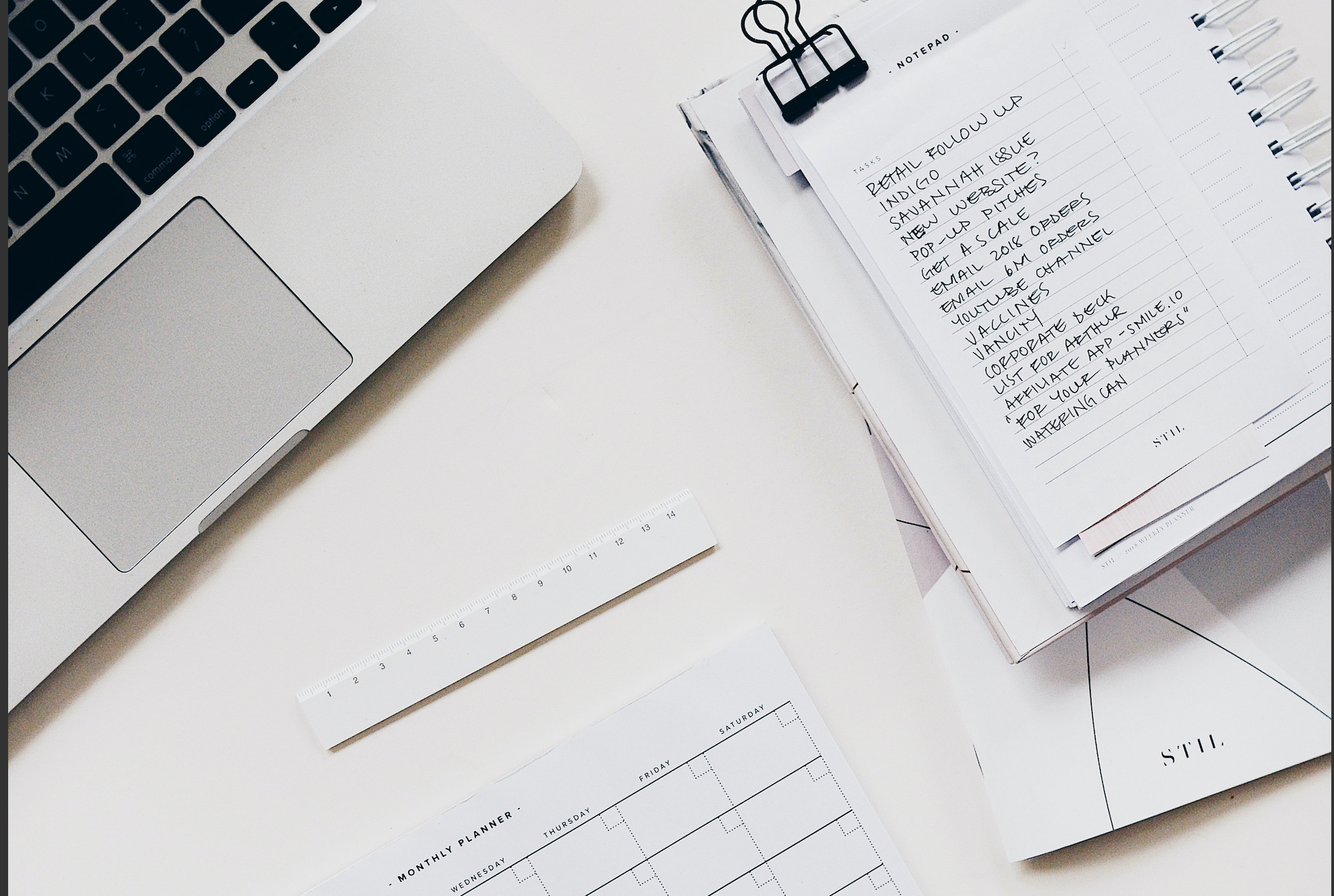We all have those days when we feel overwhelmed with our workload. For some of us, every day can feel like we’re rushing from one thing to another, with a never-ending mental list of to-dos haunting us. Those working from home may experience an uncomfortable blend of personal and work obligations. With everything piling up, it can feel like nothing actually gets done. However, with the right tools and habits, you can take control of your productivity, maximize your time, and produce better end results.
Here are some research-backed tips for boosting productivity and staying balanced:
Make a daily to-do list.
In a 2011 APA study, two professors of psychology found that making clear, actionable to-do lists will reduce your anxiety about upcoming tasks, hone your focus, and increase your overall success. By creating a list for each day, you can organize and prioritize your tasks by deadline. Breaking your to-dos into smaller, more manageable categories and steps can also help you stay on track and use your time more efficiently.
Try to schedule the more difficult tasks for the morning when your mind is most refreshed. Getting dreaded tasks done first gives you the motivation to take on the rest of your day. Check items off the list as you finish them, moving tasks you don’t finish to the next day’s list to complete.
Listen to music.
Listening to music has been shown to increase divergent thinking and feelings of empowerment, leading to higher levels of creativity and motivation. Of course, this all depends on the type of music you are playing. You wouldn’t want to listen to music you don’t enjoy or that distracts you, so seek out something pleasing. Some find that instrumental music such as light jazz helps them work through tedious tasks or upbeat pop gets them motivated for their next presentation.
Don’t multitask.
Research has shown that multitasking can actually be counterproductive. Switching from task to task requires you to spend more energy refocusing between projects. For more intensive projects, try blocking time on your calendar to ignore your emails and phone calls, and just focus. The end result is a better product in less overall time. Leave smaller, less arduous tasks for those in-between times when you have no choice but to work on multiple things at once.
Take breaks.
It may seem counterintuitive to say stepping away from your work periodically throughout the day will help you get more done. However, whether scheduled or unscheduled, taking breaks can actually refocus and re-energize you, leading to higher productivity levels.
Some find it useful to build these breaks into their calendars to maintain a structured day, while others simply find moments here and there to step away from their screens and reset. This latter technique is especially useful when you reach an impasse with a project. Taking a minute to step away allows you to clear your mind and return to the project with a fresh perspective. In fact, a study published in Neuropsychologia correlated daydreaming with the ability to generate novel solutions and execute them.
Whether you have two minutes or twenty, a quick stretch or walk around the block to get your blood flowing, eating a healthy snack, or pausing to meditate has been shown to improve cognition, help retain information, and increase creativity.
Practice delegation.
Keep your energy focused on higher priorities by delegating other tasks and projects to team members. One study actually found that you could free up to 20% of your workday by delegating less important tasks and replacing them with value-added ones.
Not only does delegation maximize your time and resources, but it also can give someone else an opportunity to take on new assignments and develop their skills. Here are a few tips to delegate well: assign tasks according to the person’s strengths, provide clear instructions, and check-in on progress regularly (but avoid micromanaging). Delegation requires a level of trust and may not come naturally to all leaders and managers, but practice by starting small and working up to larger projects.
Find what works for you.
In the end, the techniques you will find most useful for boosting productivity are individual. What works for your colleague or partner, may not work for you. Explore and try out different methods. With higher productivity levels, decreased stress, and better work/life balance, the end result will be worth the effort.
Written by Lindauer team member Amy Morse.

